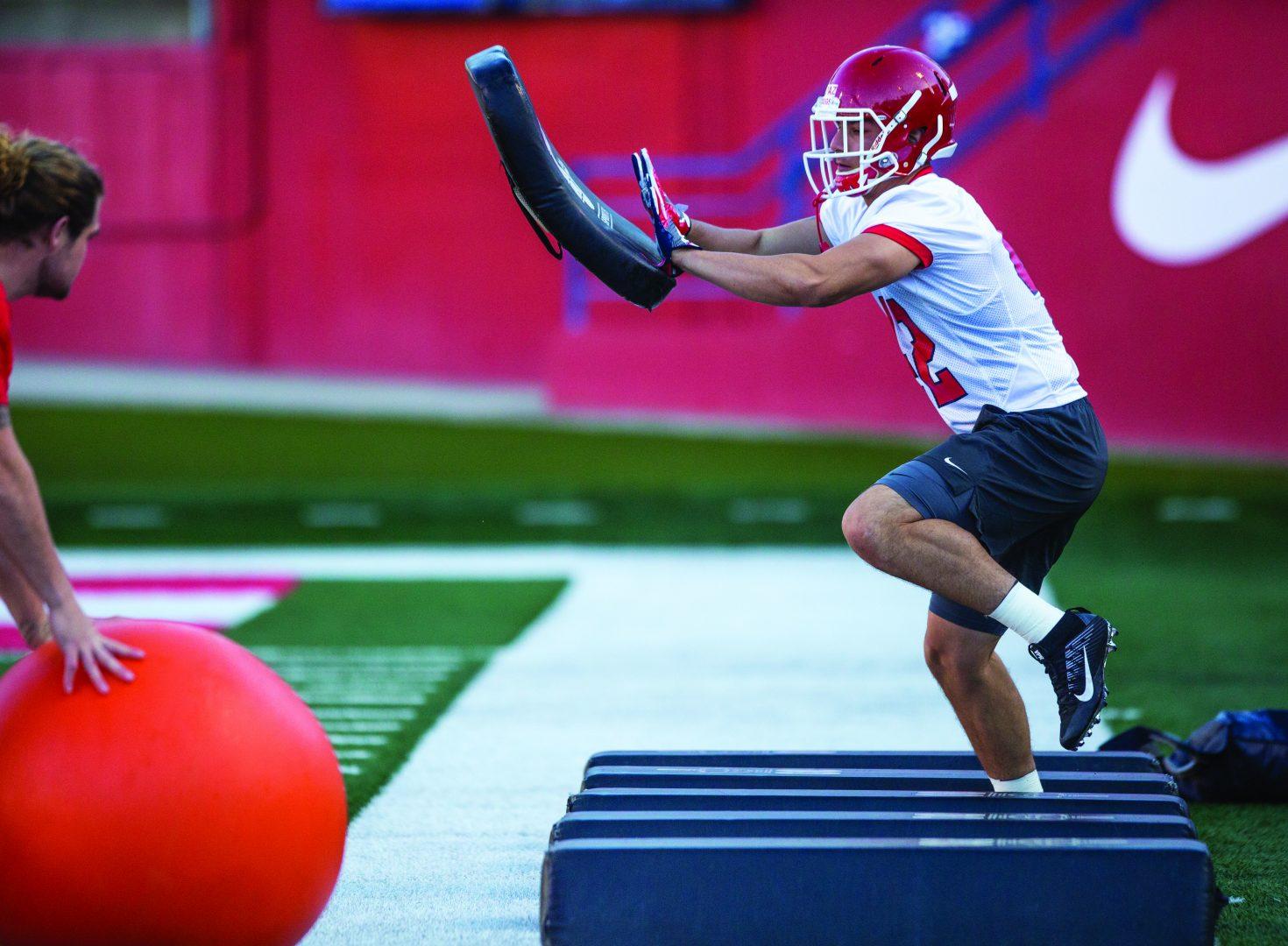By: Kyle Hendrickson
When the lights come on at Bulldog Stadium, most fans think about the players and the coaches. They are the focus of each game and receive all the praise and criticism.
What most do not realize is the importance of the people behind the scenes who are the gears that keep the machine that is Fresno State football running smoothly.
“The support staff, in general, makes the whole place run,” head coach Jeff Tedford said. “When you have 110 kids, you really rely on them to do things.”
Tedford is talking about the many people who work to make Fresno State football operations run smoothly, including the equipment managers, video crew and athletic trainers. Each of these groups play a pivotal part in the success of the football team.
On a typical Monday morning, before the players even arrive for practice, there is a group of volunteers trekking back and forth between the equipment room and the field, setting up for practice.
These volunteers make up the equipment staff and are tasked with, not only making sure the athletes are always fitted with the gear they need, but to also run specific parts of practice, from holding the yardage markers to shagging footballs.
“There’s a whole variety of things that go on over the course of a practice,” said Mark Younger, the head equipment manager. “You need to be able to adapt and move around.”
Younger has worked for Fresno State’s equipment room for 25 years. He oversees his group of volunteers so they are always prepared and ready for whatever the players and coaches may need throughout the practice.
He explained that equipment managers are unsung and never really thought of until something happens. When something goes wrong with equipment, suddenly everyone knows about the equipment managers.
“I do love my job,” Younger said. “I love that people count on me, and I love the responsibility.”
Younger said that if one thing goes wrong in a practice, it may waste a couple seconds, a “rep” that cannot be returned for the players and coaches.
“Competitive people want to compete,” Younger said. “So, we need to make sure they are given every opportunity to do that.”
One of the most vital aspects of a successful football team is how much film on itself and its opponents each team can watch. This is where video coordinator Matt Dimmitt steps in.
Dimmitt and his staff are tasked with filming every play and drill at each practice, along with breaking the film down for the coaches and players to learn from.
“We film five to six angles of practice,” Dimmitt said. “We try to get as much on tape as possible so coaches can go in and watch it to evaluate kids.”
Dimmitt has worked in sports video since 2002, when he was at Boise State. He came to Fresno State this spring.
He said it is crucial for the team to be able to have the video available for them as soon as possible because the faster the coaches can see the film, the faster they can evaluate it and get it to their players.
“I have been doing this for a long time,” Dimmitt said. “We can take a 24-period practice and have the film uploaded and ready in 15 to 20 minutes.”
In a separate building, detached from the locker room and amidst rows of training tables, is a group of athletic trainers quickly taping ankles.
Athletic trainers are some of the most important members of the athletic community, especially in football.
A contact sport like football will always have banged-up athletes, and it is the trainer’s responsibility to take care of the athletes and return them to the field as quickly as possible.
Craig Tweedy is the head athletic trainer at Fresno State. He said the training staff’s day starts just before 6 a.m. when it prepares for the athletes and whatever they may need.
“Our days are usually about 12 hours long,” Tweedy said. “We try to stay as readily available for the athletes as possible.”
Tweedy and his staff are also responsible for the well-being of the athletes on the field during all training, practices and games. They must constantly be on their feet and focused, remaining ready for any situation that may present itself.
“We train for game day just like the players and the coaches,” Tweedy said. “We always hope for the best, but injuries come up and when they do, we are confident that we can handle them.”




